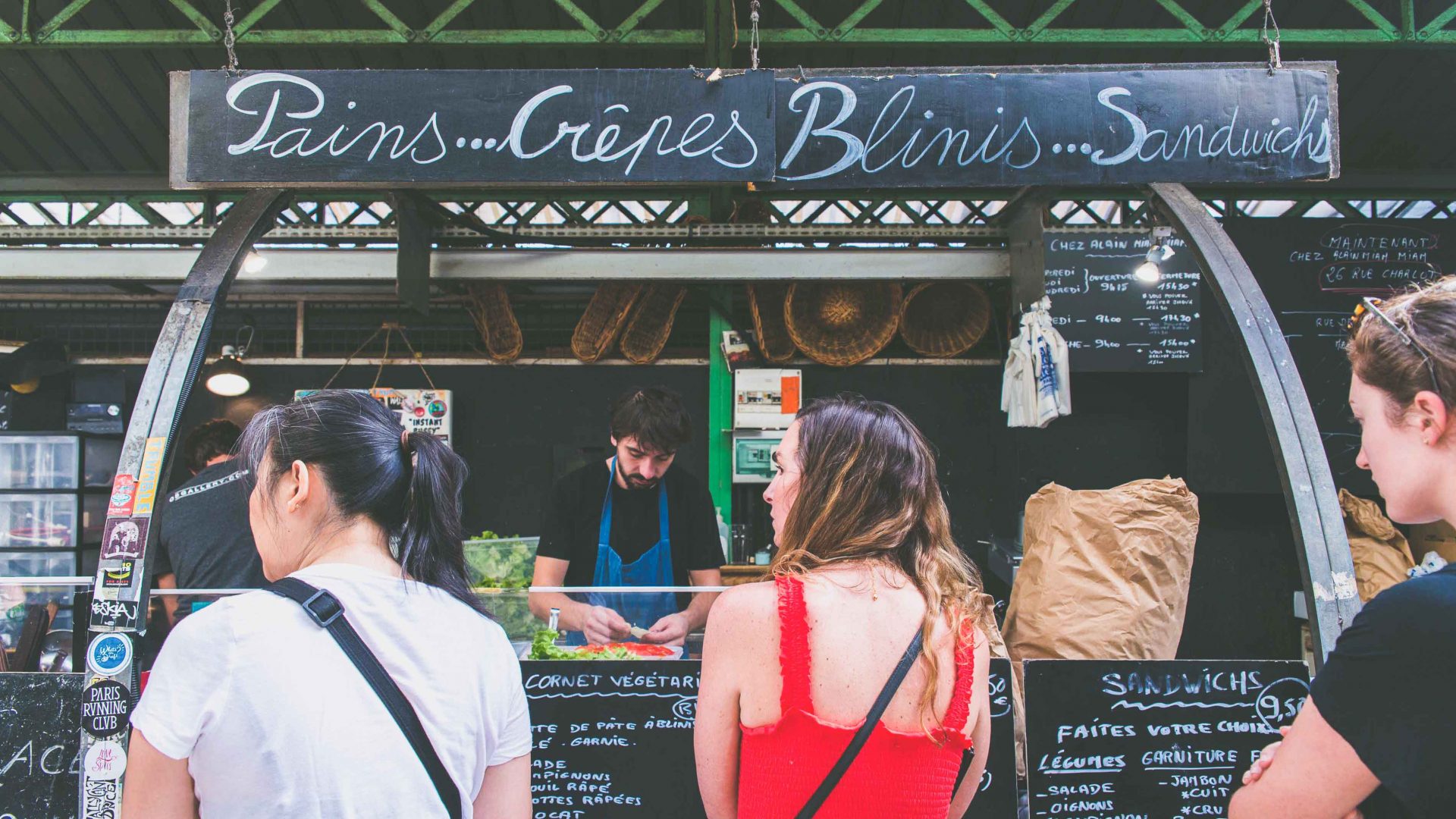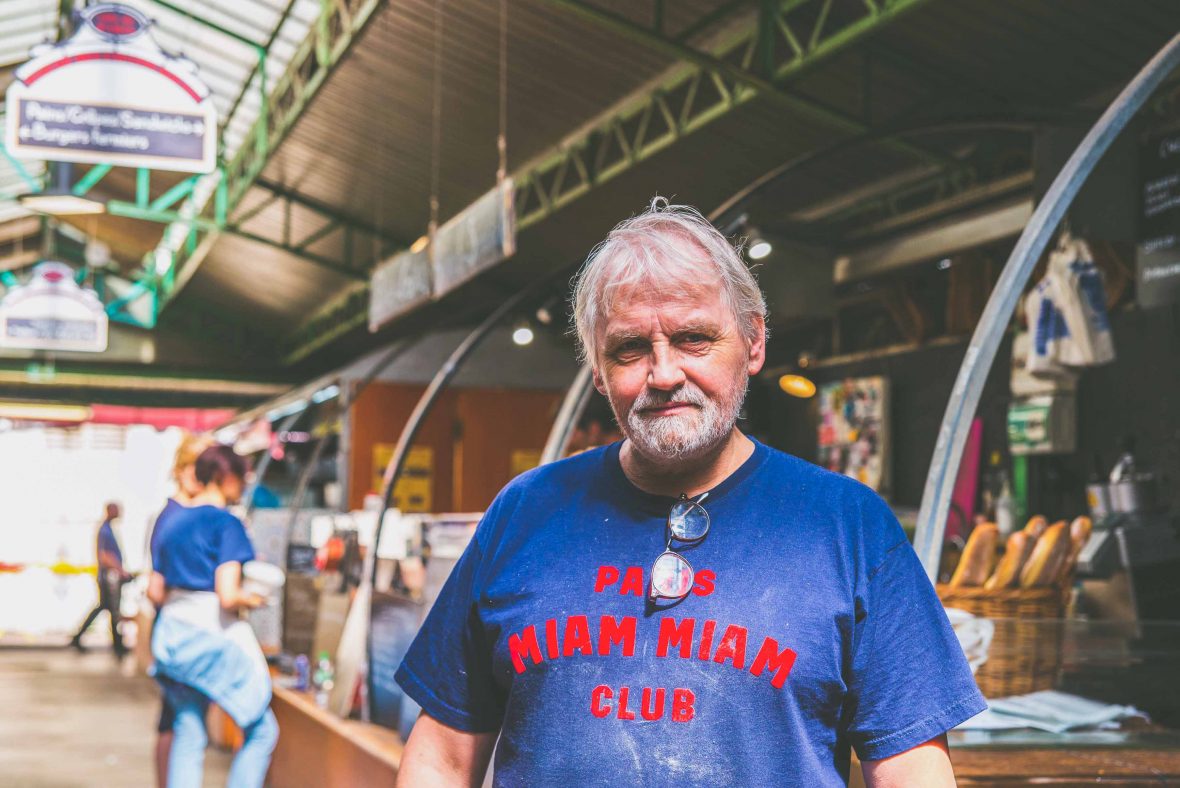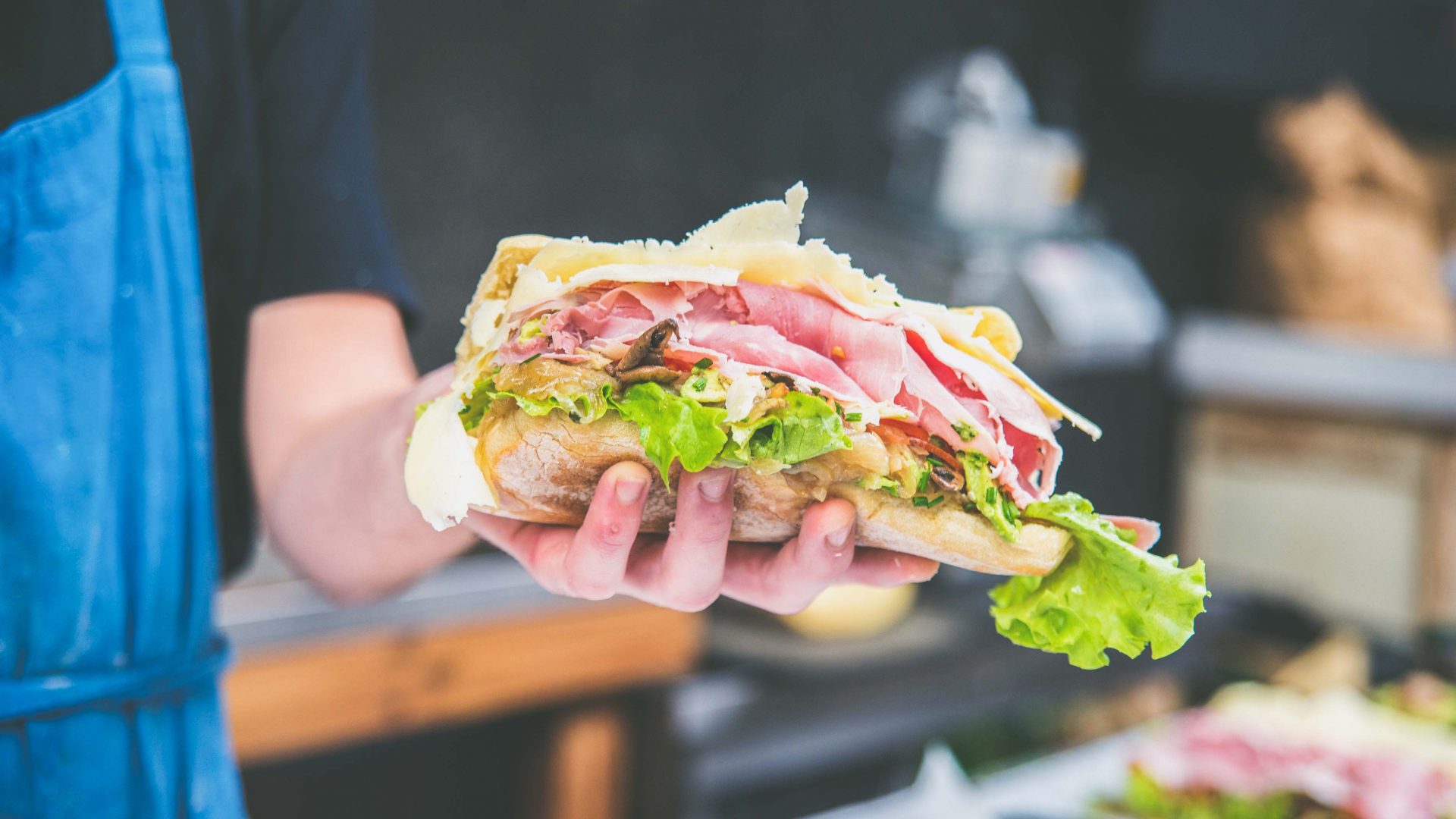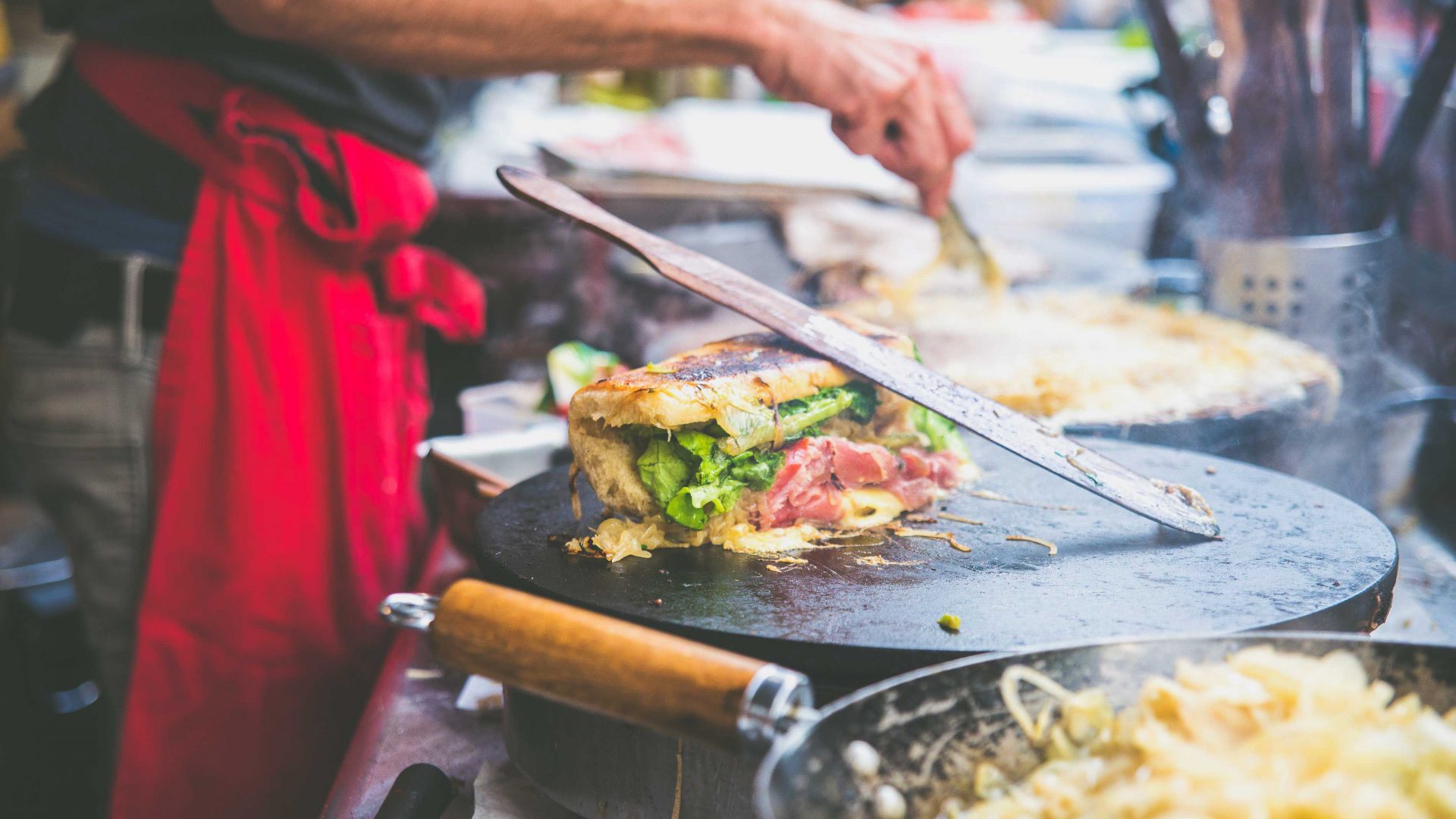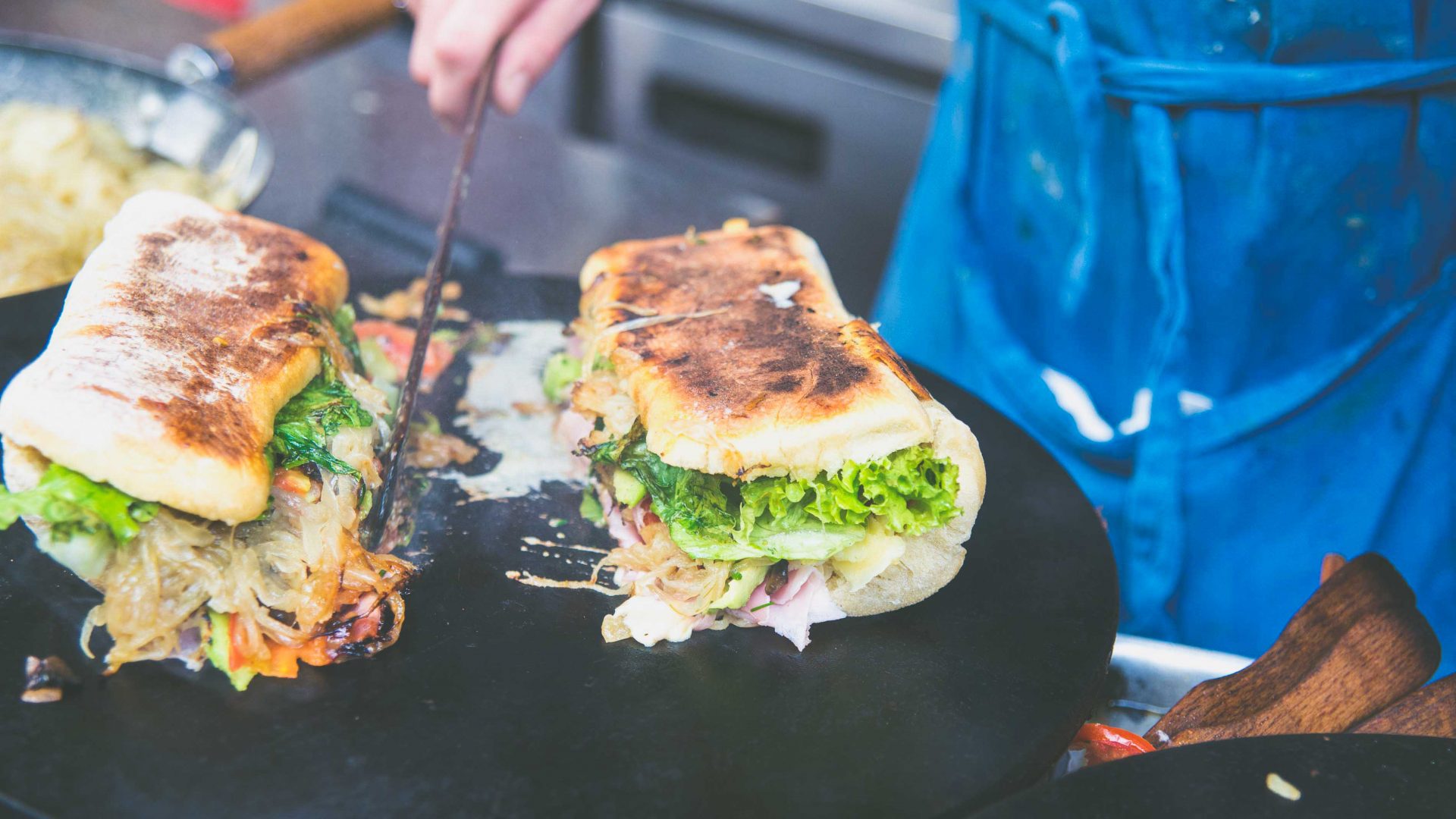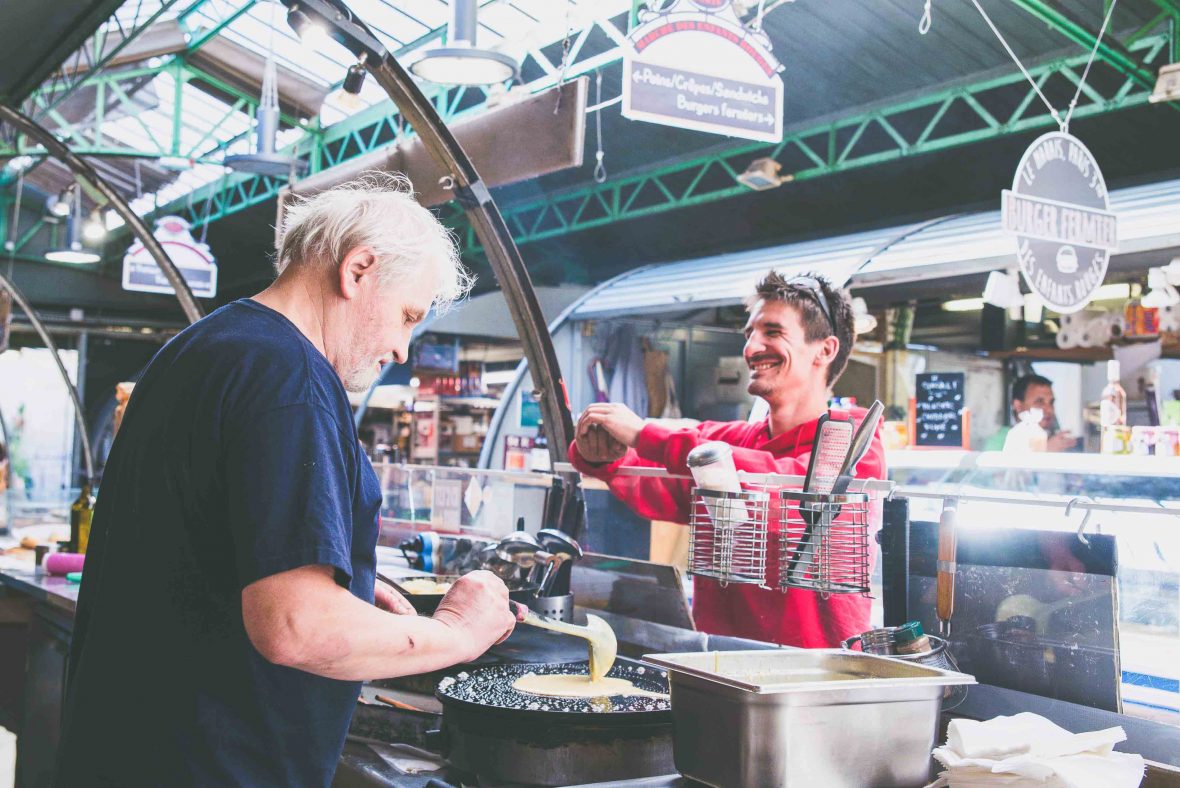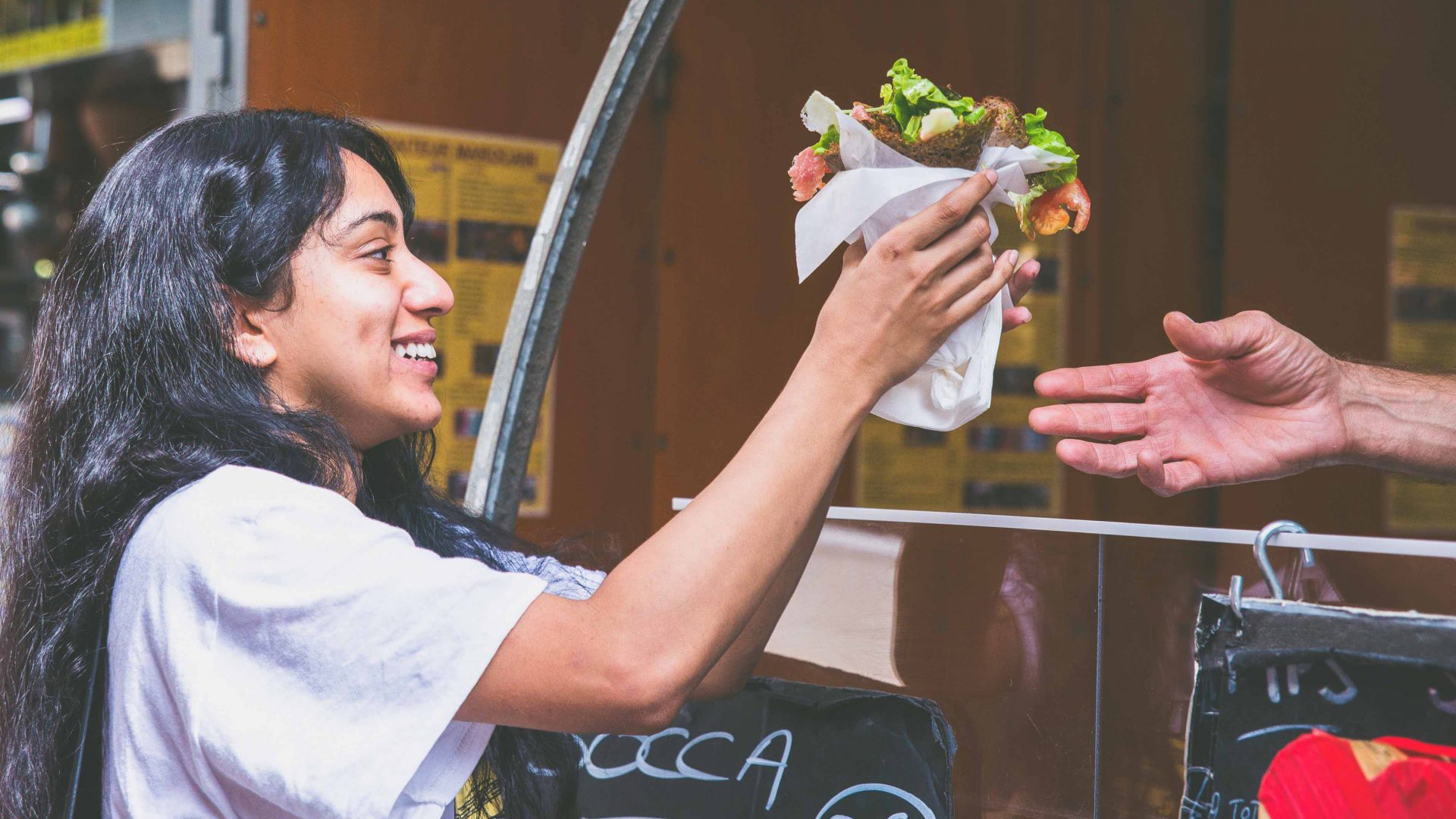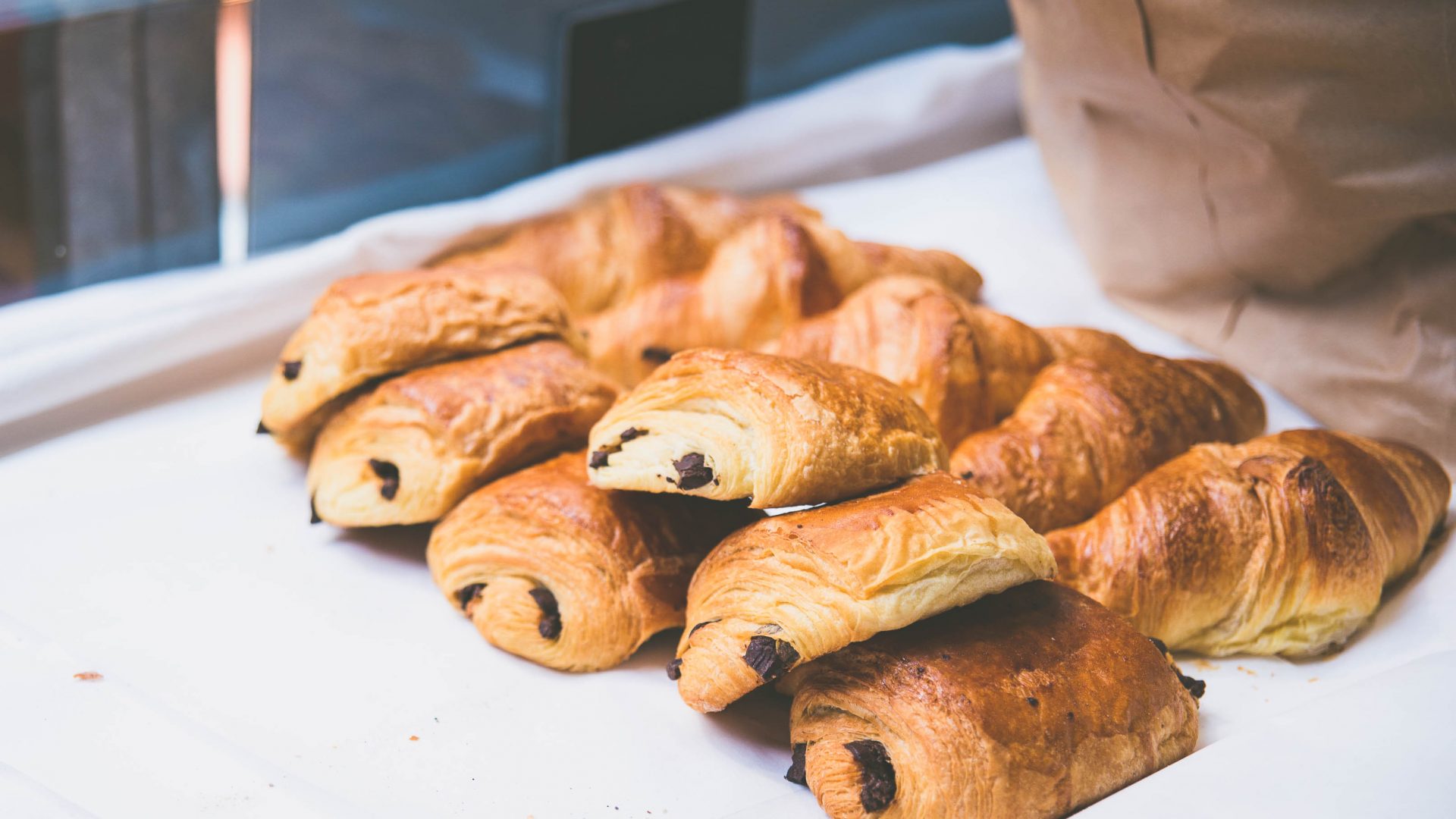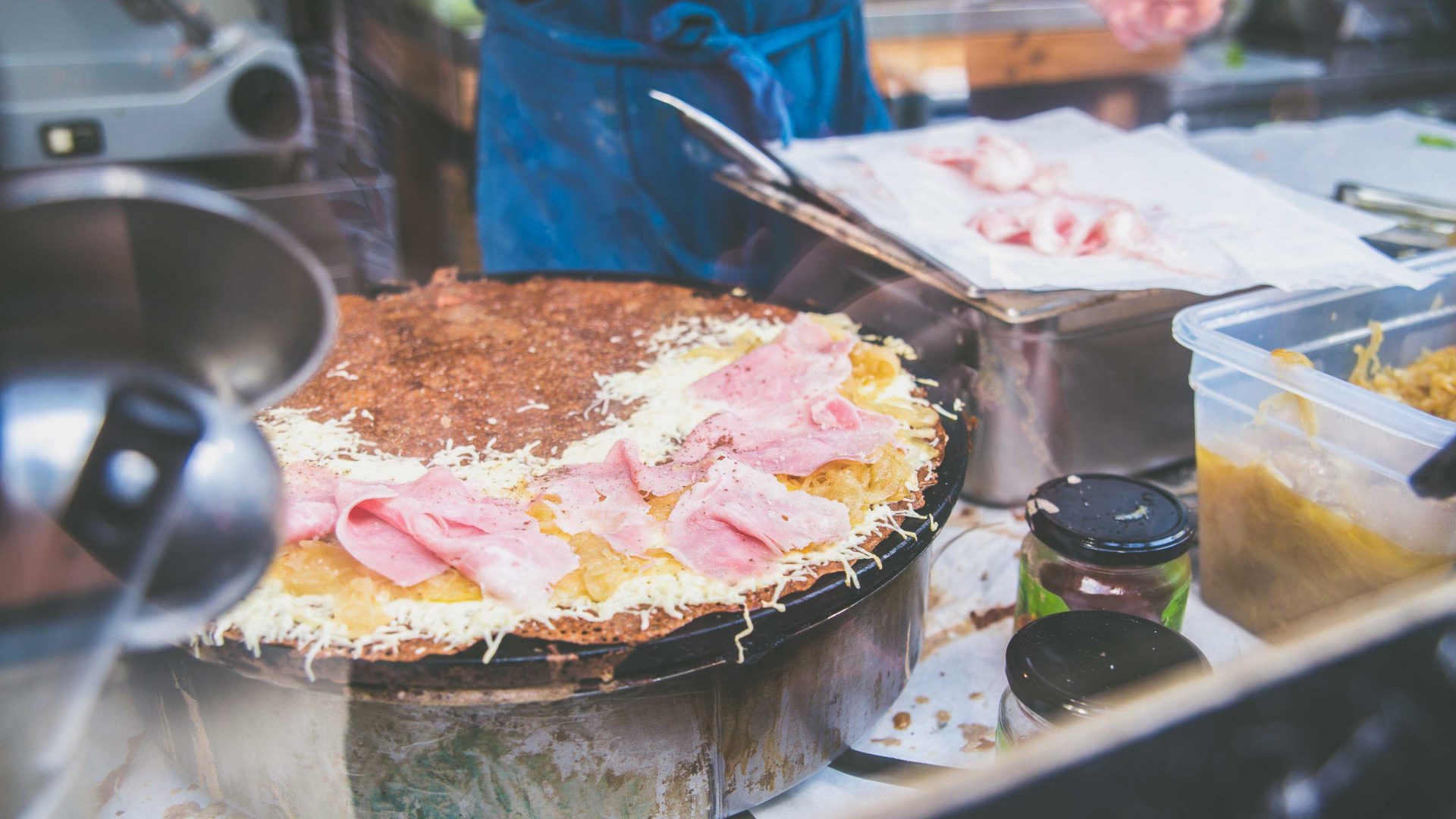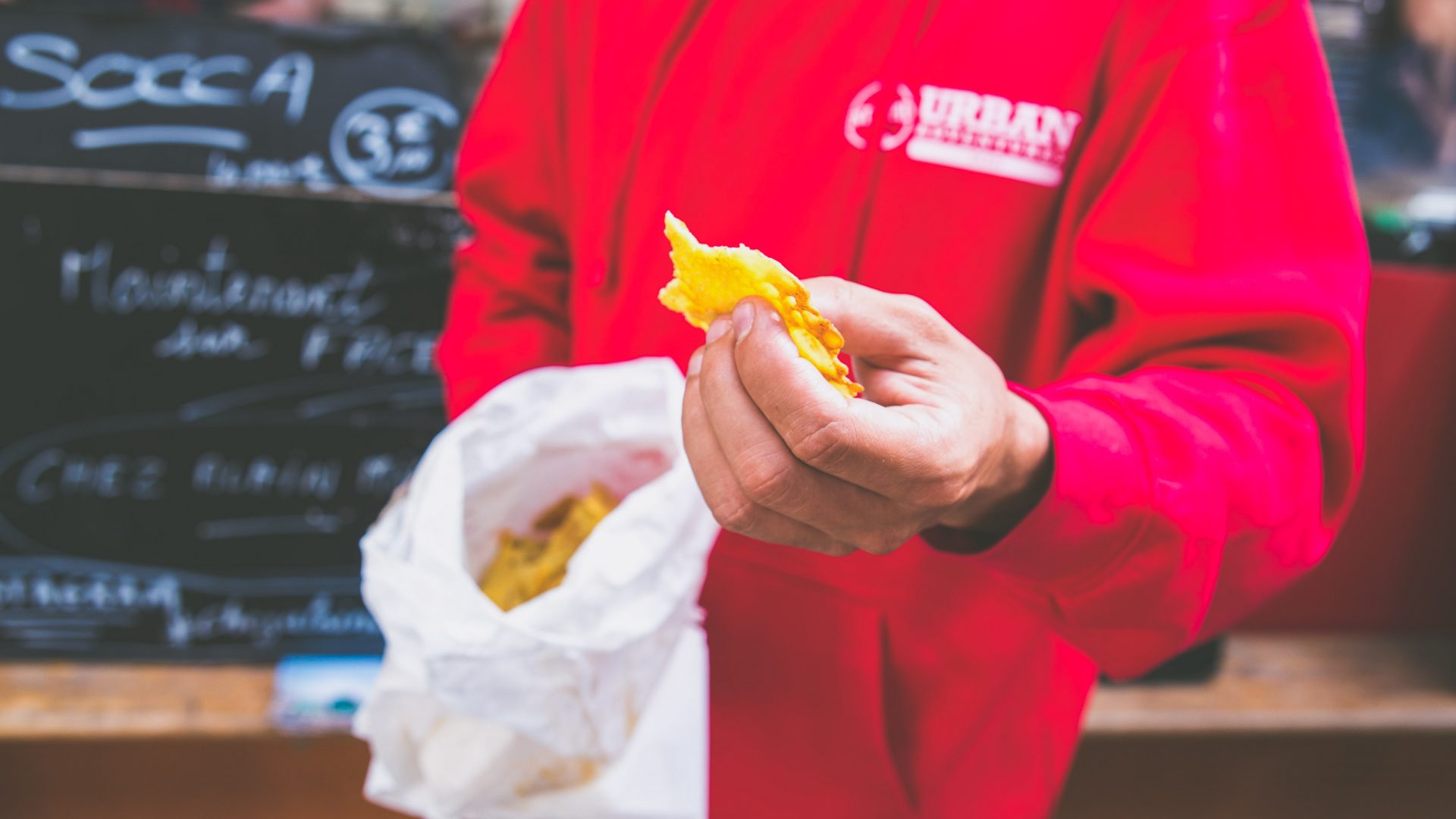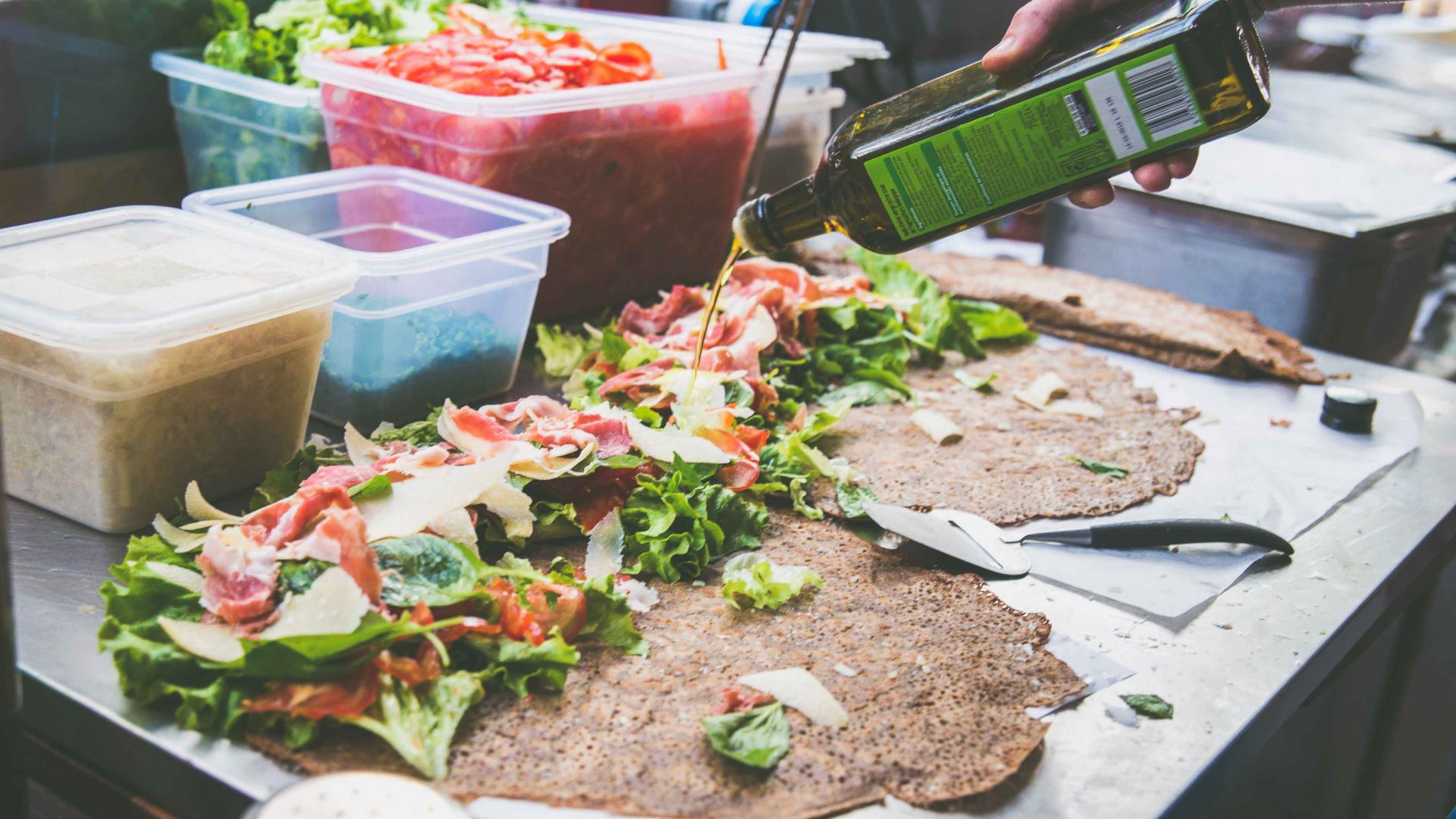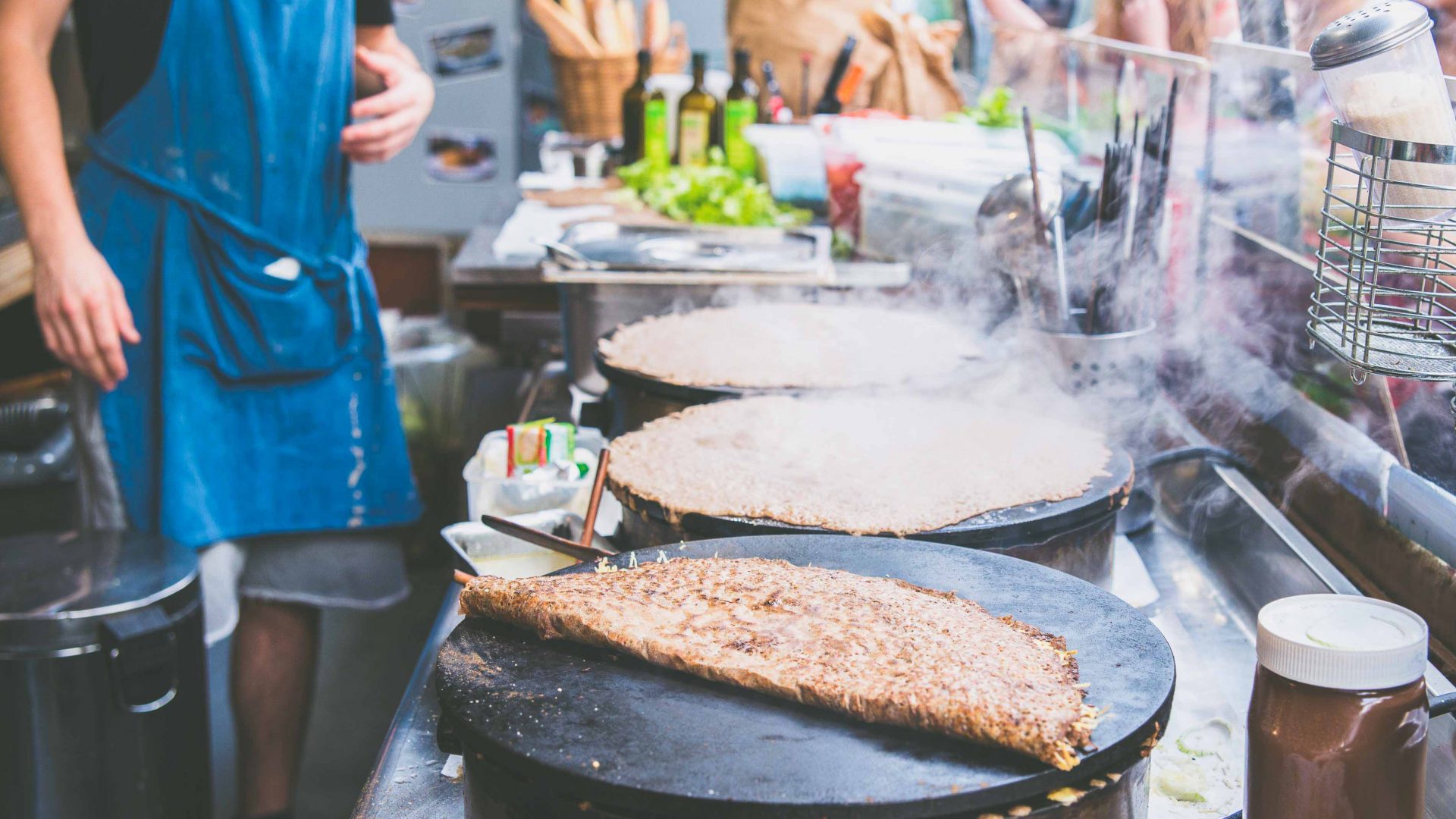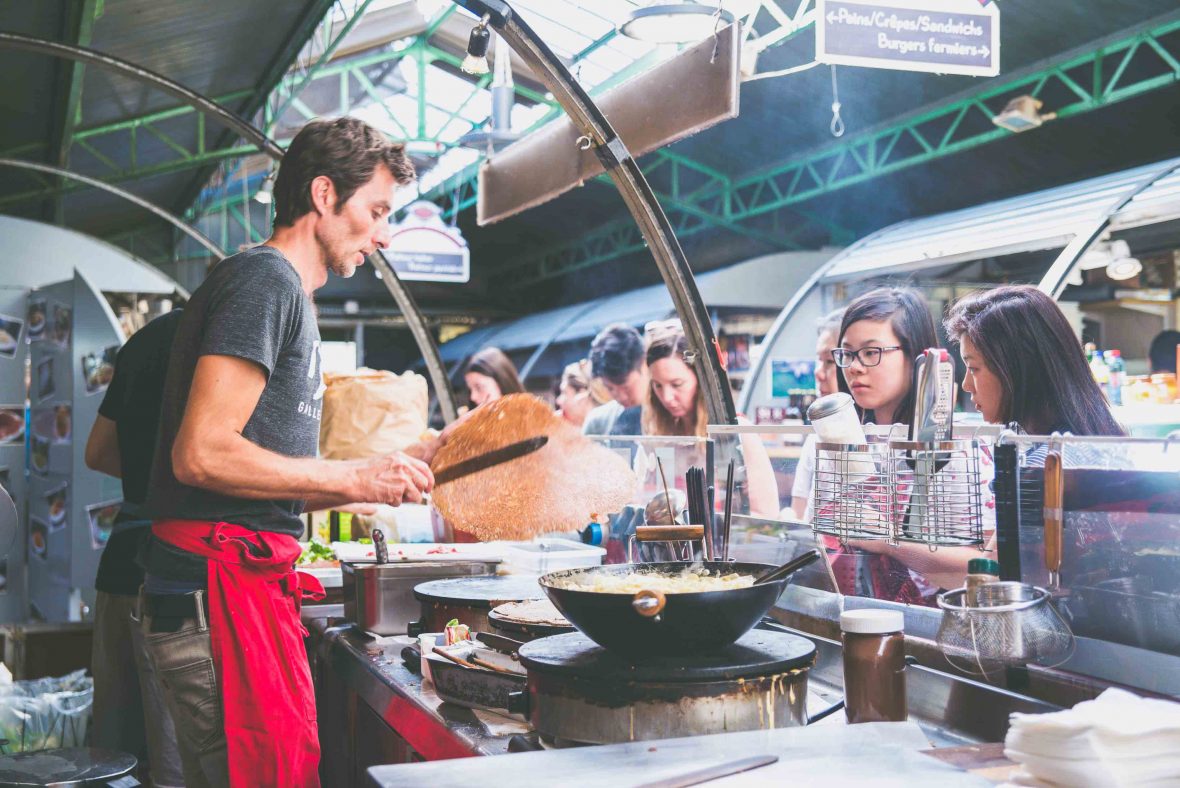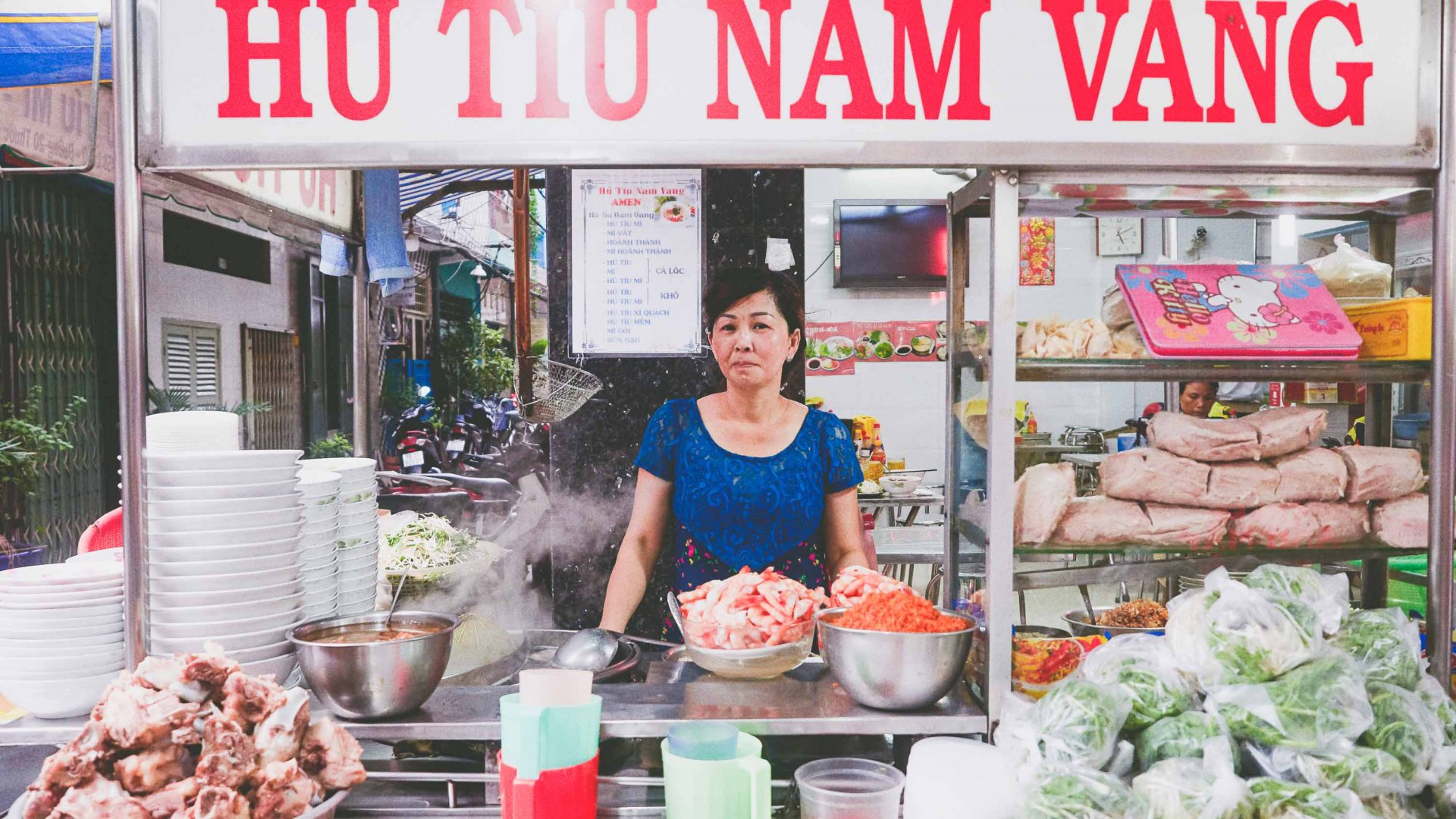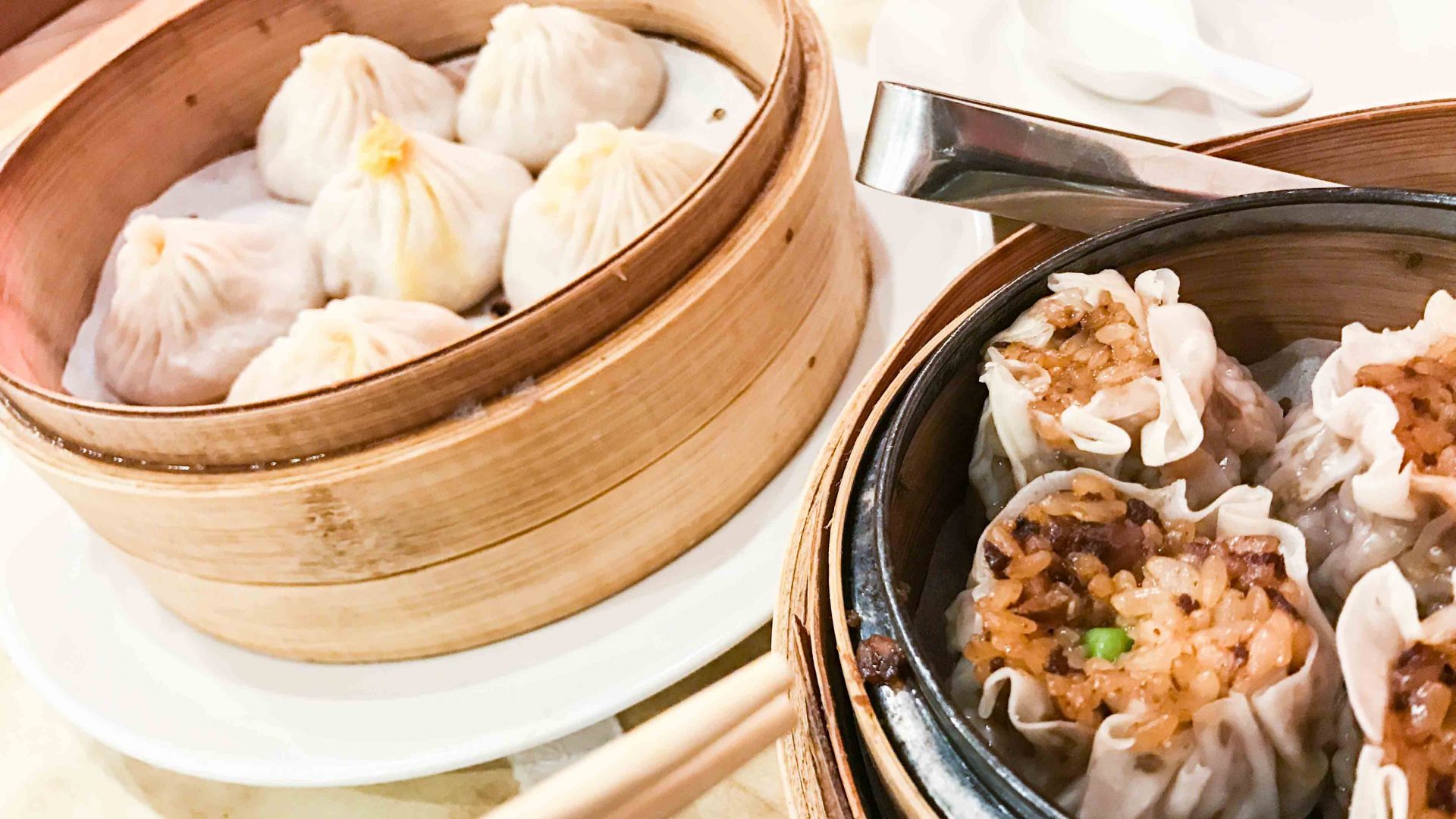
Alain Roussel, a nominee in Urban Adventures’ first ever global street food awards, hasn’t traveled much in his life but now, thanks to his literally world-famous sandwiches, galettes and crêpes, the world comes to him. Hannah Meltzer takes a bite.
It’s 9.30am on a Wednesday morning and Alain Roussel is holding court over his stand in the historic Marché des Enfants Rouges, the oldest covered market in Paris, in the heart of the now-hip Upper Marais.
As his son Jules sets out the ingredients for the day’s service—a gargantuan hunk of French ham, great wheels of Cantal cheese, baskets of fresh salads and avocados—Alain spreads a pleasingly gloopy batter across one of three cast-iron crêpe griddles. As the mixture starts to solidify, releasing a buttery aroma, the energetic 64-year-old looks up, smacks his lips, and says “miam maim!”
Right on brand. “Miam miam” translates quite simply as ‘yum yum’ and Roussel’s wildly popular stand is a place of simple pleasures. I am in the company of Arthur, a guide from day tour company Urban Adventures and all-round affable Frenchman, who introduces me to Alain’s simple but salivation-inducing menu.
Alain spent his formative years in rural Touraine, a province in the Loire Valley that is, according to Arthur, often dubbed the ‘Garden of France’ for its excellent food. “I grew up in the middle of forests, woods and fields,” Alain tells me. “There was a large pond with fish, there were cows, chickens, ducks, pigs, cockerels, goats, everything. Horses too!”
As he talks about his early influences, he goes about the morning’s prep: Punching holes in the corners of neat rectangles of greaseproof paper before hanging them on dedicated hooks on the wall, putting away an immense half-wheel of Comté, and lining up containers of salad. His speaking style is uninhibited and playful, and his t-shirt covered in flour, but there’s plenty of precision in this well-practised morning routine.
Alain suggests that the hearty fare he serves, to be eaten with the hands, represents an alternative French tradition, one characterized by fine, rustic ingredients and the principle of coming together over food, a marked contrast to the airs and graces of traditional cuisine bourgeoisie. “This is French culture—fine products which are the result of work,” he says. “To make a cheese, it is slow; to make a ham, it is slow; growing vegetables takes time.”
And if his products are in the French tradition, so too is his philosophy on service. “I am here to serve no-one,” he says. “If you want to eat my stuff, come, but I am not at your service. If someone orders me ‘give me this, I don’t want that’ then they can go elsewhere.”
His internet fame and cult status precede him. I mention the stall to a friend who’s in town from Manhattan that same week and she says: “Oh, the Miam Miam guy? It’s super well-known in New York”. Alain even has custom graphic-designed t-shirts reading ‘Paris Miam Miam Club’, which he is wearing when we meet.
So what does this 1970s radical make of being an internet sensation? “That is very pleasant,” he says. “I like it because of what it means about having good relationships with people. At the same time, I always say it’s not me that’s famous, it’s my sandwiches.”
“When I go into my apartment, there is no crowd of women there, screaming ‘Alain, Alain!’. There’s nobody,” he says with a playful smile. “I am very happy that it has an impact, but my sandwiches are the celebrities—not me.”
Back at Alain’s, Arthur and I speak to a group of twenty-somethings from Los Angeles who have read about the stand online; they film each other for Instagram as they take their first delighted bites. Meanwhile, Michelle from Austin, Texas, has read about Alain in an alternative guidebook to Paris and decides to brave the line to try his treats first-hand.
As we come to the end of conversation, he’s being called from the kitchen of his new address on Rue Charlot. “Alain, viens là!”. He raises his eyebrows, rolls his eyes. “Oo la la!”, he exclaims jovially, before adding one final comment.
“I haven’t traveled a lot in my life. I don’t have the time to travel. I’ve worked a lot, I’ve had a fair few children, I have retrained a lot; I’ve had very little time for travel. You have two options: either you go everywhere, or everywhere comes to you. I’m the second—the whole world comes to me. C’est merveilleux.”
—-
